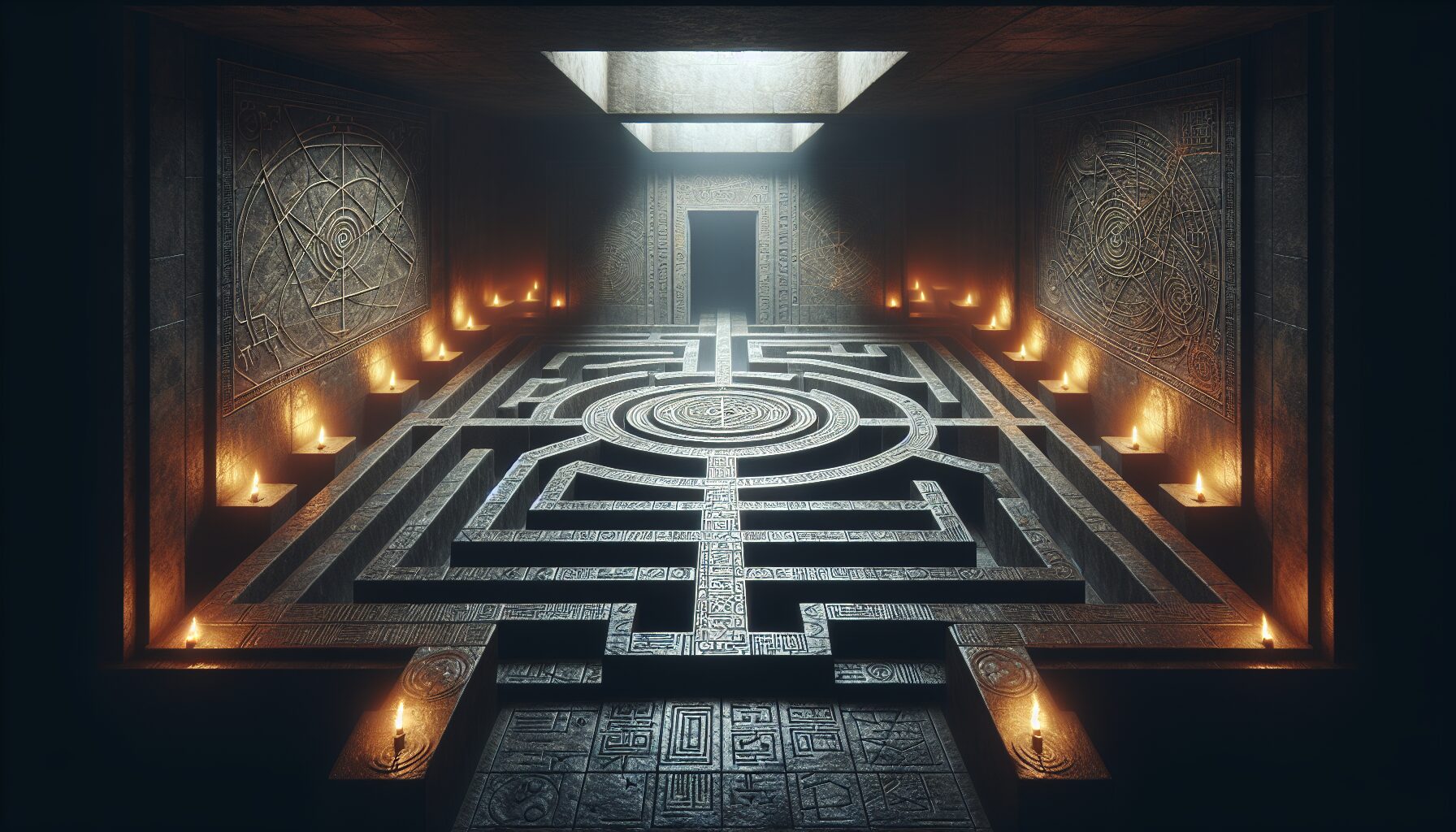Throughout history, humanity’s fascination with the mysterious and unknown has spawned a labyrinth of knowledge often concealed from plain sight. Known as the occult, this body of esoteric wisdom has been both revered and reviled, conjuring images of clandestine rituals and shadowy cabals. However, beyond the sensationalism, lies a profound and intricate world that seeks to unearth the unseen. This article navigates through the maze of the occult, exploring its roots, philosophies, and enduring allure.
Origins and Evolution
The term occult originates from the Latin word occultus, meaning hidden or secret. Historically, the occult has encompassed a wide range of practices and beliefs, including alchemy, astrology, hermeticism, and magical societies. While its exact origins are murky, traces of occult practices can be found scattered throughout ancient civilizations, from the mystical pyramids of Egypt to the arcane texts of Mesopotamia.
During the Renaissance, the occult experienced a revival as scholars began to seek knowledge beyond the material world. Influential figures, such as Paracelsus and John Dee, emerged during this period, blending scientific inquiry with mystical exploration. As noted in Cambridge Core, “The Renaissance occult philosophy merged with scientific advancements, heralding a paradigm shift that challenged conventional thinking.”
The Philosophical Underpinnings
At its core, the occult is deeply philosophical, often questioning the nature of reality, the existence of higher dimensions, and the potential for human transformation. It is rooted in the belief that hidden forces shape our universe, forces that can be understood and harnessed through dedicated study and practice.
“The real voyage of discovery consists not in seeking new landscapes, but in having new eyes.” — Marcel Proust
Such perspectives highlight the occult’s emphasis on personal insight and spiritual awakening. The teachings often revolve around the concept of enlightenment, the attainment of profound understanding that transcends ordinary perception. This echoes ancient philosophies, such as Gnosticism, which propose that true knowledge is esoteric and accessible only to those who seek it with sincere intention.
Alchemy: The Art of Transformation
One of the cornerstones of the occult is alchemy, an age-old tradition that seeks the transmutation of base elements into noble substances. While often misconstrued as a quest for material wealth, alchemy is essentially a spiritual journey aimed at the purification and perfection of the soul.
According to History.com, “Alchemy’s goals were not primarily physical; rather, they were spiritual and personal transformation.” This dual nature is depicted in the symbolic quest for the Philosopher’s Stone, a mythical substance that grants eternal life and divine wisdom.
Astrology: Celestial Influences
Astrology is another prominent facet of occult knowledge. By studying celestial bodies, astrologers purport to discern patterns and influences in human affairs. This practice dates back to the Babylonians and was later refined by the Greeks, who integrated it with astronomical observations.
Skeptics often dismiss astrology as pseudo-science; however, its popularity persists, with many individuals seeking guidance in horoscopes and birth charts. The Guardian remarks that “In spite of modern skepticism, astrology endures, partly because it provides a sense of control and comfort for many.”
Hermeticism: The Divine Connection
Rooted in the teachings attributed to Hermes Trismegistus, Hermeticism is a pivotal influence on the occult. This spiritual tradition is characterized by the belief in a divine unity and the interconnectedness of all things, encapsulated in the maxim, “As above, so below.” Hermetic philosophy suggests that the microcosm and macrocosm reflect each other, emphasizing the potential for humans to attain divine consciousness through introspection and alignment with the cosmos.
Occult Societies and Modern Movements
Secret societies and organizations have played a significant role in the propagation of occult knowledge, often shrouding their activities in mystery and discretion. Groups like the Rosicrucians and the Hermetic Order of the Golden Dawn have been instrumental in preserving and developing esoteric traditions.
In contemporary times, the occult has experienced a resurgence through new-age movements and alternative spirituality, influenced by modern literature, media, and the internet. The democratization of information has allowed these ancient teachings to reach a broader audience, encouraging a renewed interest in personal empowerment and spiritual exploration.
The Continuing Allure
In a world dominated by technology and empirical science, the enduring allure of the occult lies in its promise of deeper understanding and inner transformation. As a counterpoint to the materialist worldview, it invites seekers to question the established norms and explore the frontiers of consciousness.
The occult’s paradoxical nature—being both intangible yet profoundly impactful—ensures that it remains a source of intrigue and fascination. As long as there are questions about the universe’s mysteries and the depths of the human soul, the occult will continue to captivate imaginations and inspire quests for hidden knowledge.
Conclusion
The labyrinth of the occult is vast, its pathways winding through the annals of history and into the hearts of those yearning for meaning beyond the observable. While not without its critics and controversies, the occult provides a unique perspective that complements the quest for understanding. Ultimately, it is the courage to navigate this labyrinth, armed with curiosity and an open mind, that yields the treasure of enlightenment.

Comments